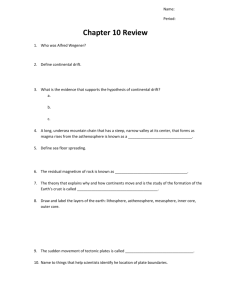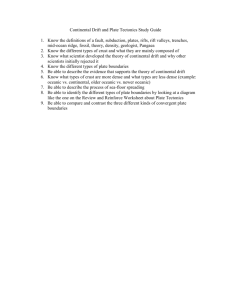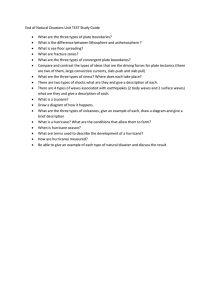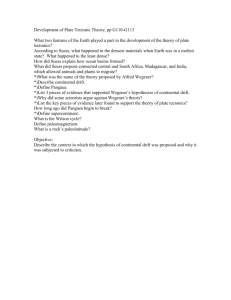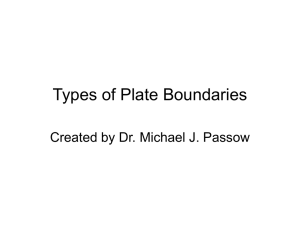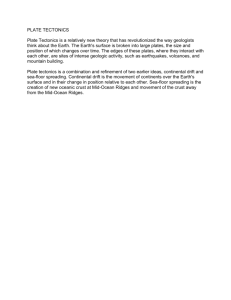Plate Tectonics
advertisement
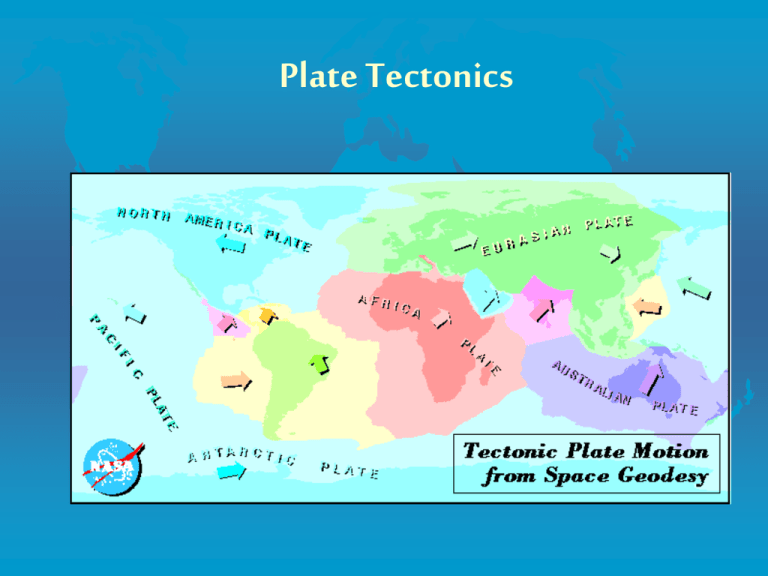
Plate Tectonics Continental Drift Evidence for Continental Drift A. Theory of continental drift is the idea that the continents have moved horizontally to their current locations. 1. This theory was developed by Alfred Wegener. 2. Wegener believed that all of the continents were connected as one large land mass (he called Pangea) about 200 million years ago. Alfred Wegener (1880-1930) B. Fossils of Mesosaurs have been found in South America and Africa. C. Glacial deposits and grooved bedrock were found in southern areas of South America, Africa, India, and Australia. D. Parts of the Appalachian mountains in the eastern US are similar to those found in Greenland and western Europe. How Could the Continents Drift? Rock, Fossil and Climate clues were the main evidence for continental drift during Wegener’s lifetime. Wegener’s theory was often rejected because no one could explain how the continents moved. Theory of Plate Tectonics Plate Tectonics A. Theory of Plate Tectonics is the idea that the Earth’s crust and upper mantle are broken into sections called plates that move around on the mantle. B. Composition of the Earth’s plates: 1. Lithosphere – the crust and part of the upper mantle 2. Asthenosphere – the plastic-like layer below the lithosphere Plate Boundaries There are three different plate boundaries: Divergent Boundaries Convergent Boundaries Transform Boundaries Divergent Boundaries Divergent Boundaries are the boundaries between two plates that are diverging, or moving away from each other. Convergent Boundaries Convergent Boundaries are the boundaries between two plates that are converging, or moving towards each other. There are three types of convergent boundaries: 1. An ocean floor plate collides with a less dense continental plate. 2. An ocean floor plate collides with another ocean floor plate. 3. A continental plate collides with another continental plate. Oceanic-Continental Oceanic-Oceanic Continental-Continental Transform Fault Boundaries Transform Boundaries are the boundaries between two plates that are sliding horizontally past one another. Effects of Plate Tectonics Landforms caused by plate tectonics: a. rift valleys (divergent boundaries) b. mountain ranges (continental-continental convergent boundaries) c. volcanoes (oceanic-continental convergent boundaries) d. faults (transform boundaries) Causes of Plate Tectonics Convection Current is the driving force of plate tectonics in which hot, plastic-like material from the mantle rises to the lithosphere, moves horizontally, cools, and sinks back to the mantle. The convection currents provide enough energy to move the plates in the lithosphere. Quick Review of Plate Boundaries
